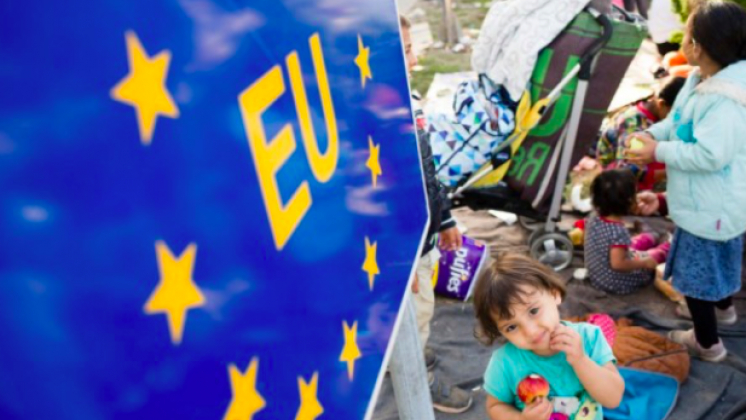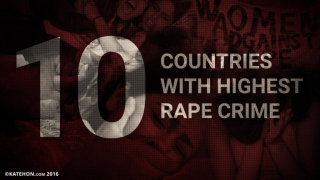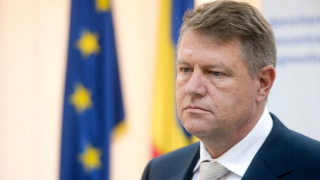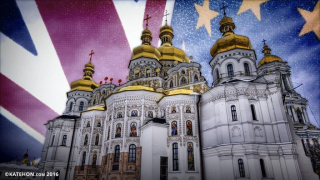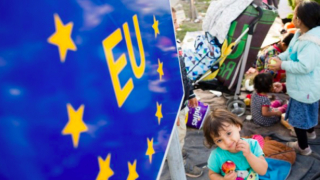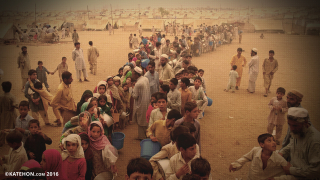Alain de Benoist: EU is breaking apart today on the question of migrants
Interview with Alain de Benoist. Translated by Eugene Montsalvat
Increasingly, the migrant crisis seems to be leading to an institutional crisis in Europe. When the anti-migration revolt only concerned “minor” and “distant” counties, Poland or Hungary, the European Commission could still treat this affair with contempt. But when Italy, founding country of Europe, bangs its fist on the table, would not the affair take another turn?
Historians of the future will remember that the European Union, which had somehow survived a hasty enlargement, a permanent deficit of democracy and Euro crisis, is breaking apart today on the question of migrants. It's a historic turning point indeed, can we be surprised by it? Throughout the years, the social pathologies linked to immigration have ended up occupying first place in the preoccupations of Europeans. People quite simply no longer endure what they perceive as an “invasion” or an “inundation,” and enduring it is all the more distressing as they have the impression that the flows are not about to slow down. Even more importantly, they no longer believe those who have smugly explained to them for decades that immigration is an economic and demographic “opportunity”, and that one must have a singularly dry heart in order to not see it as a “moral obligation.” The French are willingly xenophobic, but absolutely not racists (it's opposite for the Germans). They know well that it's not “prejudices” which are ruining their lives. In short, they see what they see, and they know what they see.
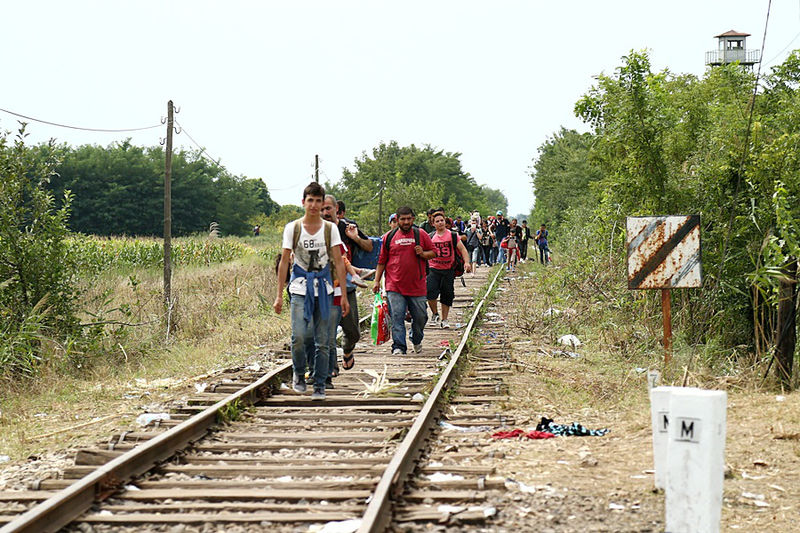
Photo - Wikipedia
Europe is dismantling itself, but its also recomposing itself. The countries of central Europe, which do not want to transform into caravansaries, are withdrawing from the game. It's usually said that they are turning inwards on themselves, but they are also associating among themselves. Not only do the countries of the Visegrád Group (Hungary, Poland, the Czech Republic, and Slovakia) frontally oppose the pro-immigration orders of the Brussels Commission, but they also have rallied to the Three Seas Initiative, launched three years ago by the Polish president Andrzej Duda and the Czech president Kolinda Grabar-Kitarović, which also includes the three Baltic countries, Austria, Slovenia, Croatia, Romania, and Bulgaria. This bloc of twelve countries and 120 million inhabitants, extending from the Baltic to the Adriatic and the Black Sea, could constitute the embryo of another Europe.
Polls show that the migratory question has been at the top of the preoccupations of French and European people for a long time, and that hostility to immigration is only increasing. Why do governments ignore them, while that's likely to cost them very dearly politically?
Firstly because they are paralyzed by associative and media lobbies, who repeat the mantras of political correctness day and night. They don't want to confront them at any price. But the deepest reason is that they themselves are beholden to the dominant ideology. From the point of the dominant ideology, immigration is not a problem and cannot be one, because cultures and peoples count for practically nothing. Only individuals count. Any regulation of immigration violates the liberal principle according to which one cannot accept the utilization of contingent aspects of individual identity, starting with their origin or membership in a socio-cultural group, in order to legitimize of “inequalities of treatment.”
Liberalism addresses the question in a purely economic perspective: immigration comes down to an augmentation of the size of the labor force and the potential mass of consumers. Moreover, it justifies itself by the imperative of the free circulation of men, capital, and merchandise. A million non-Europeans coming to settle in Europe is thus only a million individuals coming to add themselves to millions of other individuals. The problem is that the inhabitants of the host country, they don't see “individuals” arriving, but contingents of Malians, Senegalese, Maghrebis, Pakistanis, etc, whose mores are noted to be difficult to reconcile with theirs.
In Italy, the union of left wing (M5S) and right wing (the League) populists is a novelty in relation to Austria for example, with its right – extreme right coalition. Is this phenomenon specifically Italian or can it take place in other countries, including France, always seeking its eternal “union of rights?”
Political phenomena of great magnitude rarely export themselves identically from one country to another, but rather they take different forms there. Thus so do populist movements, which do not cease to rise across all of Europe, but configure themselves in varying manners. Nevertheless they have one essential trait in common.

Photo - Facebook Lega
It's that the feeling of cultural insecurity excited by the migratory wave doesn't suffice to explain populism. Populism only begins where economic and social insecurity adds itself to cultural insecurity, essentially in the popular classes and in an (increasing) part of the middle classes. It's for that reason the divide “excluded on the bottom against the moneyed on the top” is increasingly taking the place of the left – right divide.
And that's exactly what happened in Italy, a country on the first line facing migratory flows but which has also been very seriously affected by the financial crisis of 2008. Let's not doubt that it will increasingly happen elsewhere.
Source in French - Boulevard Voltaire

